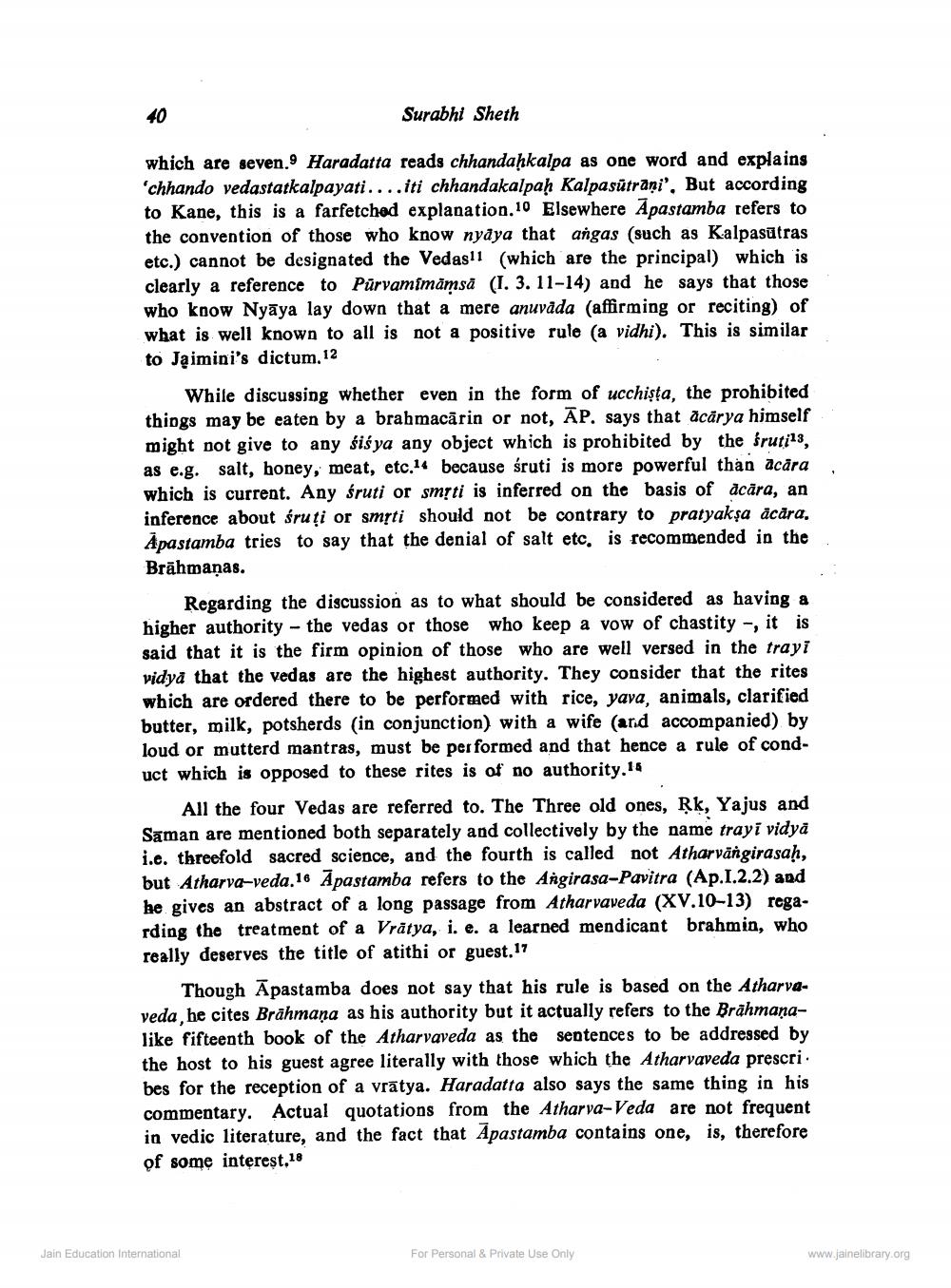________________
Surabhi Sheth
which are seven.' Haradatta reads chhandaḥkalpa as one word and explains 'chhando vedastatkalpayati....iti chhandakalpaḥ Kalpasūtrani'. But according to Kane, this is a farfetched explanation.10 Elsewhere Apastamba refers to the convention of those who know nyāya that angas (such as Kalpasūtras etc.) cannot be designated the Vedas!1 (which are the principal) which is clearly a reference to Purvamimämsä (1. 3. 11-14) and he says that those who know Nyāya lay down that a mere anuvāda (affirming or reciting) of what is well known to all is not a positive rule (a vidhi). This is similar to Jạimini's dictum, 12
While discussing whether even in the form of ucchişta, the prohibited things may be eaten by a brahmacārin or not, AP, says that acārya himself might not give to any śiśya any object which is prohibited by the śruti13, as e.g. salt, honey, meat, etc.14 because śruti is more powerful than acara which is current. Any śruti or smsti is inferred on the basis of acāra, an inference about śruţi or smrti should not be contrary to pratyakşa ācāra, Åpastamba tries to say that the denial of salt etc. is recommended in the Brāhmaṇas.
Regarding the discussion as to what should be considered as having a higher authority - the vedas or those who keep a vow of chastity -, it is said that it is the firm opinion of those who are well versed in the trayi vidya that the vedas are the highest authority. They consider that the rites which are ordered there to be performed with rice, yava, animals, clarified butter, milk, potsherds in conjunction) with a wife and accompanied) by loud or mutterd mantras, must be performed and that hence a rule of conduct which is opposed to these rites is of no authority.14
All the four Vedas are referred to. The Three old ones, ķk, Yajus and Saman are mentioned both separately and collectively by the name trayī vidyā i.e. threefold sacred science, and the fourth is called not Atharvängirasaḥ, but Atharva-veda. 16 Āpastamba refers to the Angirasa-Pavitra (Ap.1.2.2) and he gives an abstract of a long passage from Atharvaveda (XV.10-13) regarding the treatment of a Vrátya, i. e. a learned mendicant brahmin, who really deserves the title of atithi or guest.17
Though Āpastamba does not say that his rule is based on the Atharvaveda, he cites Brāhmaṇa as his authority but it actually refers to the Brahmanalike fifteenth book of the Atharvaveda as the sentences to be addressed by the host to his guest agree literally with those which the Atharvaveda prescri: bes for the reception of a vrātya. Haradatta also says the same thing in his commentary. Actual quotations from the Atharva-Veda are not frequent in vedic literature, and the fact that Apastamba contains one, is, therefore of some interest.18
Jain Education International
For Personal & Private Use Only
www.jainelibrary.org




